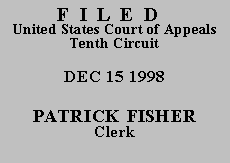

| UNITED STATES OF AMERICA,
v.
WALLIE A. SCOTT |
|
Defendant Scott appeals pro se an order of the district court denying a motion to vacate, set aside, or correct defendant's federal sentence pursuant to the provisions of 28 U.S.C. § 2255. This matter is before this court on defendant's application for a certificate of appealability and motion to proceed in forma pauperis under the provisions of the Antiterrorism and Effective Death Penalty Act (AEDPA). Defendant was originally sentenced after a jury trial and conviction on charges of conspiracy to possess with intent to distribute cocaine base and possession with intent to distribute cocaine base. At that time, defendant's retained counsel did not perfect an appeal. Defendant then filed a pro se § 2255 petition claiming ineffective assistance of counsel for failure to perfect the appeal. The district court granted the petition, appointed new counsel, and after further proceedings, resentenced Mr. Scott to the same sentence originally imposed. The conviction and sentence was affirmed by this court. See United States v. Scott, No. 92-6272, 1993 WL 411596, at *8 (10th Cir. Oct. 8, 1993) (unpublished opinion). Defendant then filed this § 2255 petition. The district court referred the petition to this court, seeking a ruling on whether its filing constituted a second or successive filing pursuant to the provisions of the AEDPA. This court held that it did not and remanded the matter to the district court; see United States v. Scott, 124 F.3d 1328, 1330 (10th Cir. 1997). Upon remand, the district court denied the petition. On appeal, the defendant challenges the denial of that petition.
Defendant alleges on appeal: (1) that he was denied effective assistance of trial counsel for the failure of the trial counsel to obtain an independent lab analysis of the controlled substances involved; (2) ineffective assistance of appellate counsel for failing to raise the ineffective assistance of trial counsel issue in the direct appeal of the conviction; and (3) improper sentencing based on possession of cocaine base rather than crack cocaine.
We decline to issue the certificate of appealability and further decline to grant in forma pauperis status to defendant. The record in this case contains the testimony of the government's chemist, who stated that the substance found in defendant's possession at the time of his arrest was cocaine. There is further testimony in the record by defendant with regard to his use of crack cocaine and his intent to purchase crack cocaine. Under these circumstances, the district court was under no duty to hold a separate evidentiary hearing with regard to the failure of trial counsel to obtain an independent lab analysis to challenge the government's evidence with regard to the cocaine at issue. We hold that the district court did not abuse its discretion in refusing to order such an evidentiary hearing. Further, this same testimony shows that trial counsel's alleged errors did not fall below any objective standard of reasonableness as required in Strickland v. Washington, 466 U.S. 668, 688 (1984). Additionally, defendant has failed to show any prejudice to his defense as a result of the failure of trial counsel. See id. at 691.
We further find that defendant has failed to show that appellate counsel was ineffective because she failed to raise the ineffectiveness of trial counsel as a basis for appeal. The law of this circuit is clear that ineffective assistance of counsel claims brought on direct appeal are "presumptively dismissible, and virtually all will be dismissed." United States v. Galloway, 56 F.3d 1239, 1240 (10th Cir. 1995). Thus, appellate counsel's decision not to raise the ineffectiveness claim with regard to trial counsel is clearly not an unreasonable exercise of professional judgment. We further agree with the district court that there is no merit to plaintiff's contention that he was improperly sentenced because of the nature of the substance he possessed.
We find that defendant has failed to raise issues that are debatable among jurists, that a court could resolve the issues differently, or that the questions deserve further proceedings. United States v. Sistrunk, 111 F. 3d 91, 91 (10th Cir. 1997). We deny the certificate of appealability. We deny the motion to proceed in forma pauperis pursuant to the provisions of Fed. R. App. P. 24. The appeal is dismissed.
ENTERED FOR THE COURT,
Deanell Reece Tacha
Circuit Judge
*.This order and judgment is not binding precedent, except under the doctrines of law of the case, res judicata, and collateral estoppel. This court generally disfavors the citation of orders and judgments; nevertheless, an order and judgment may be cited under the terms and conditions of 10th Cir. R. 36.3.